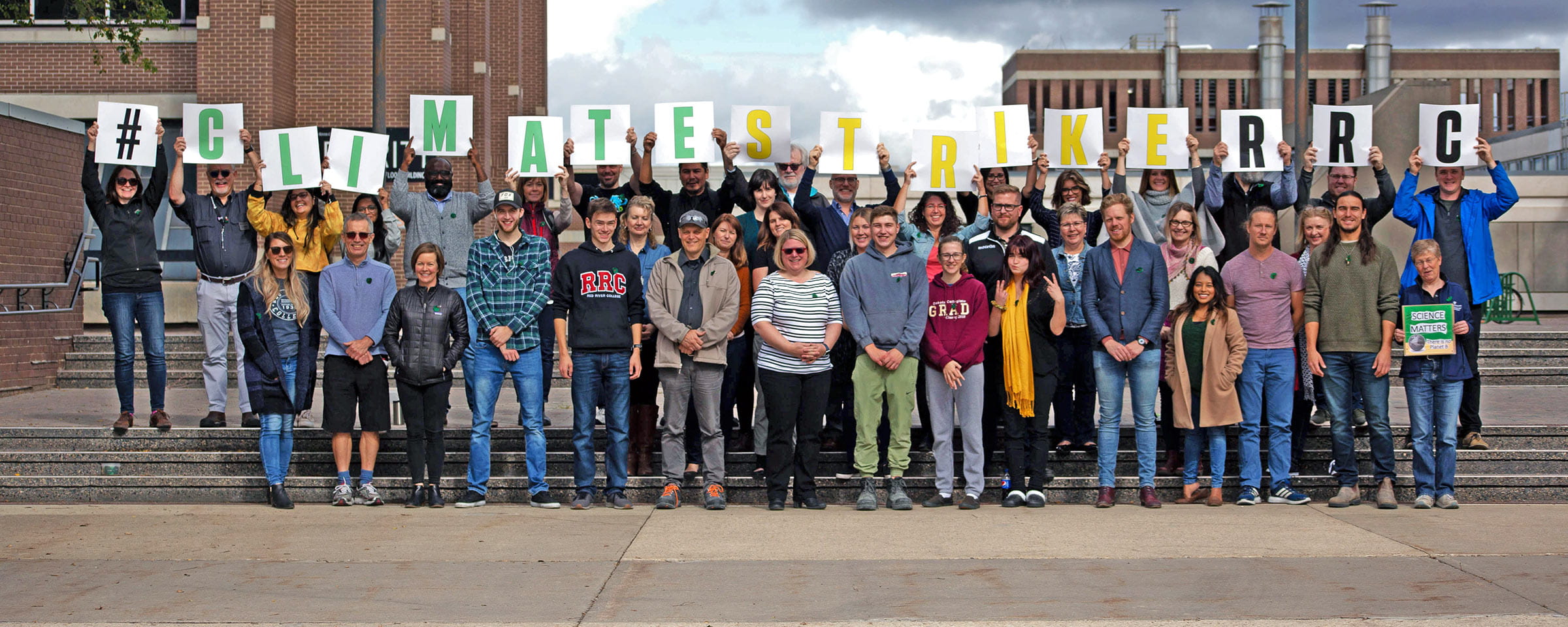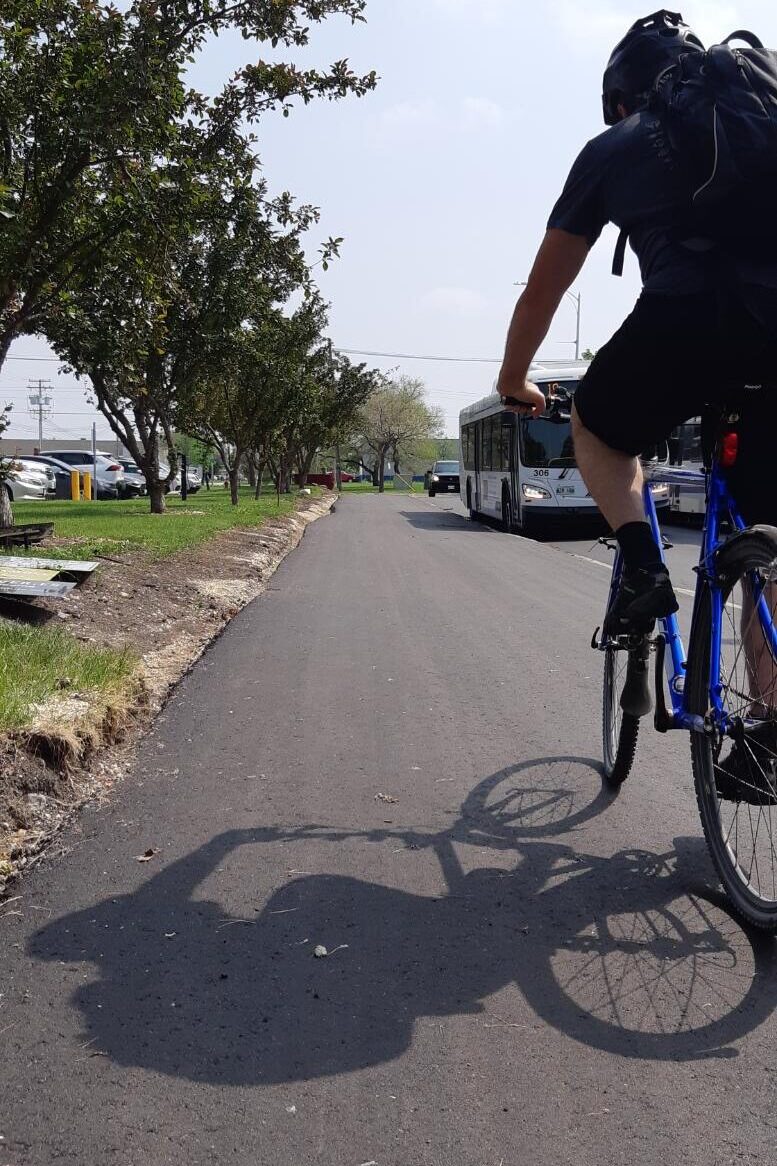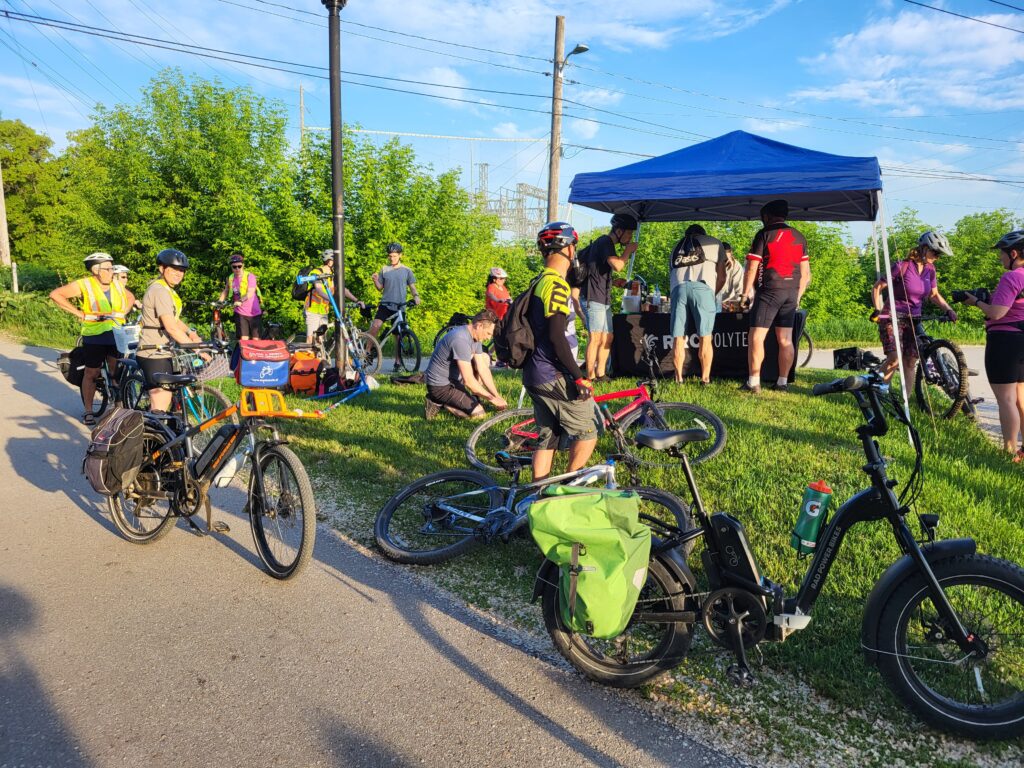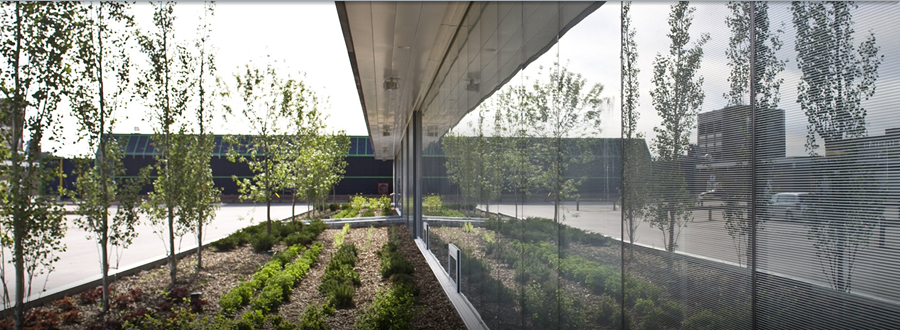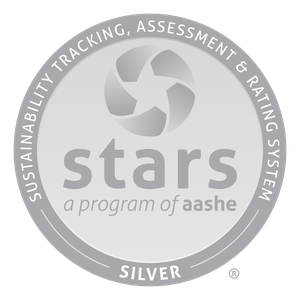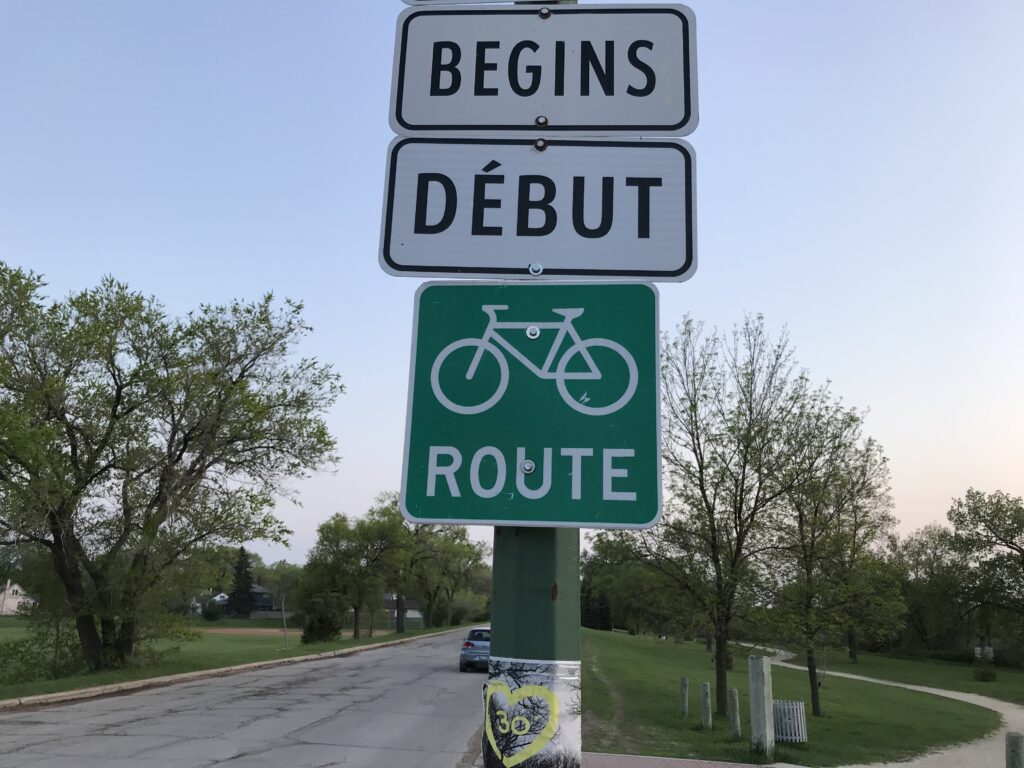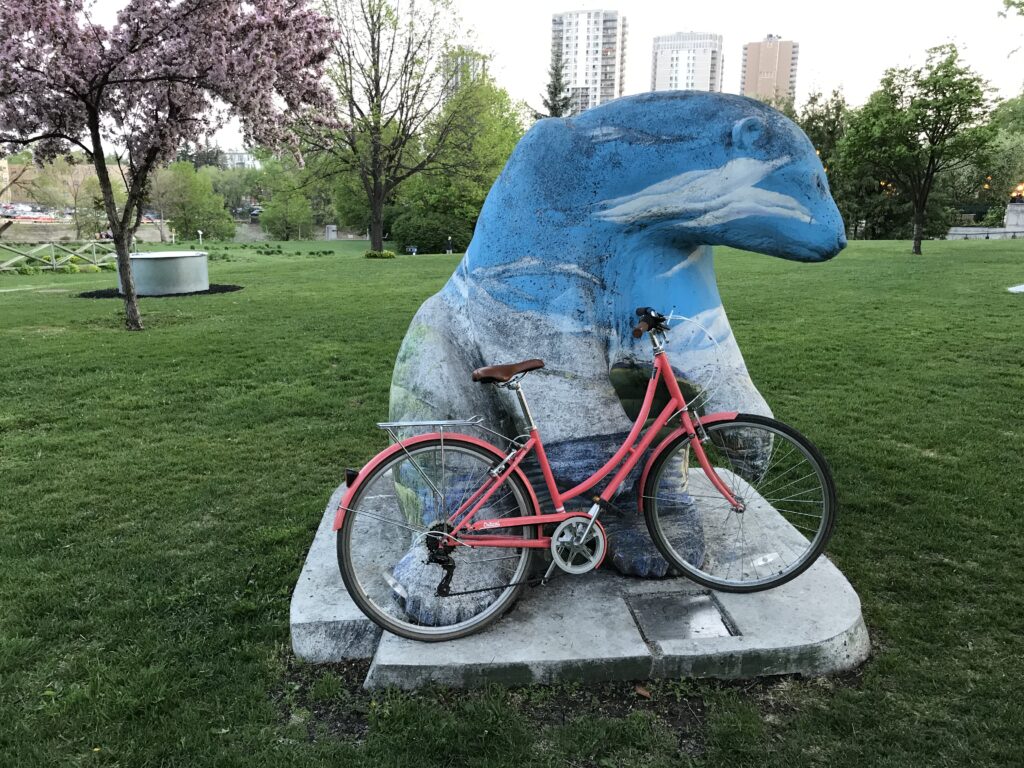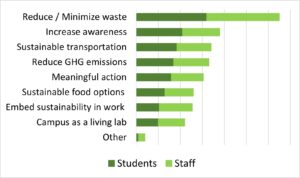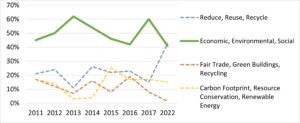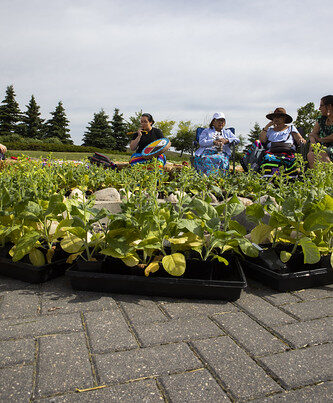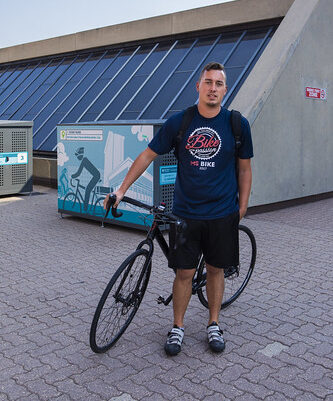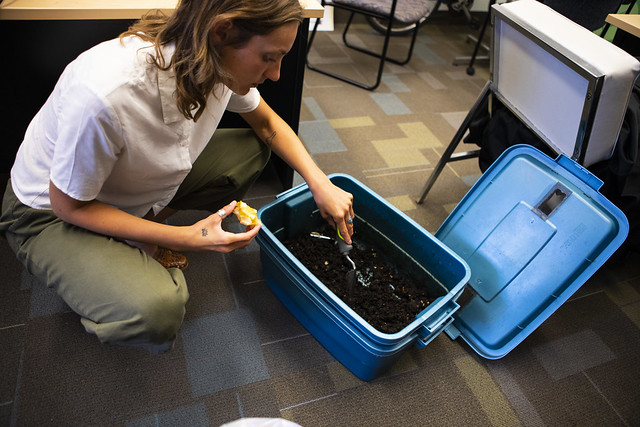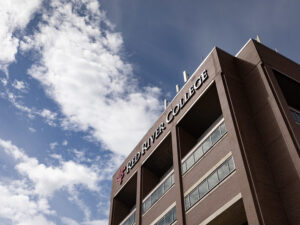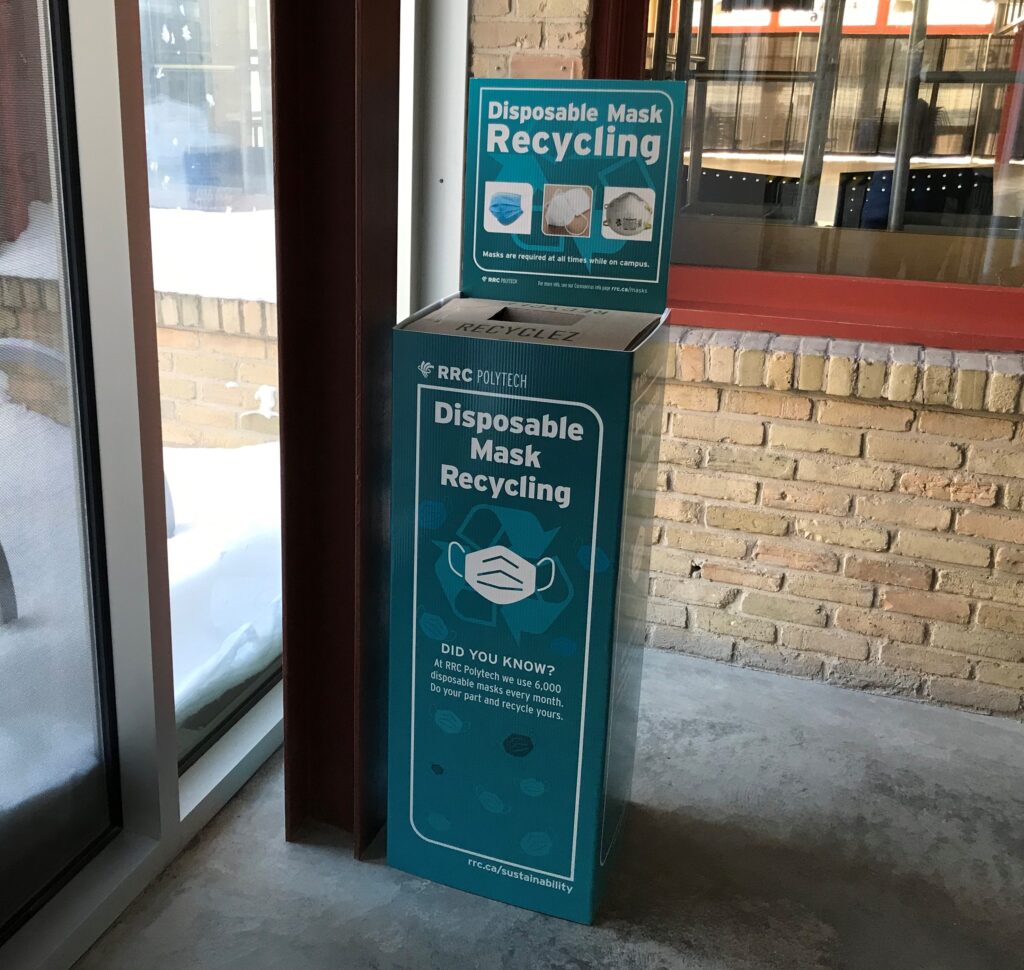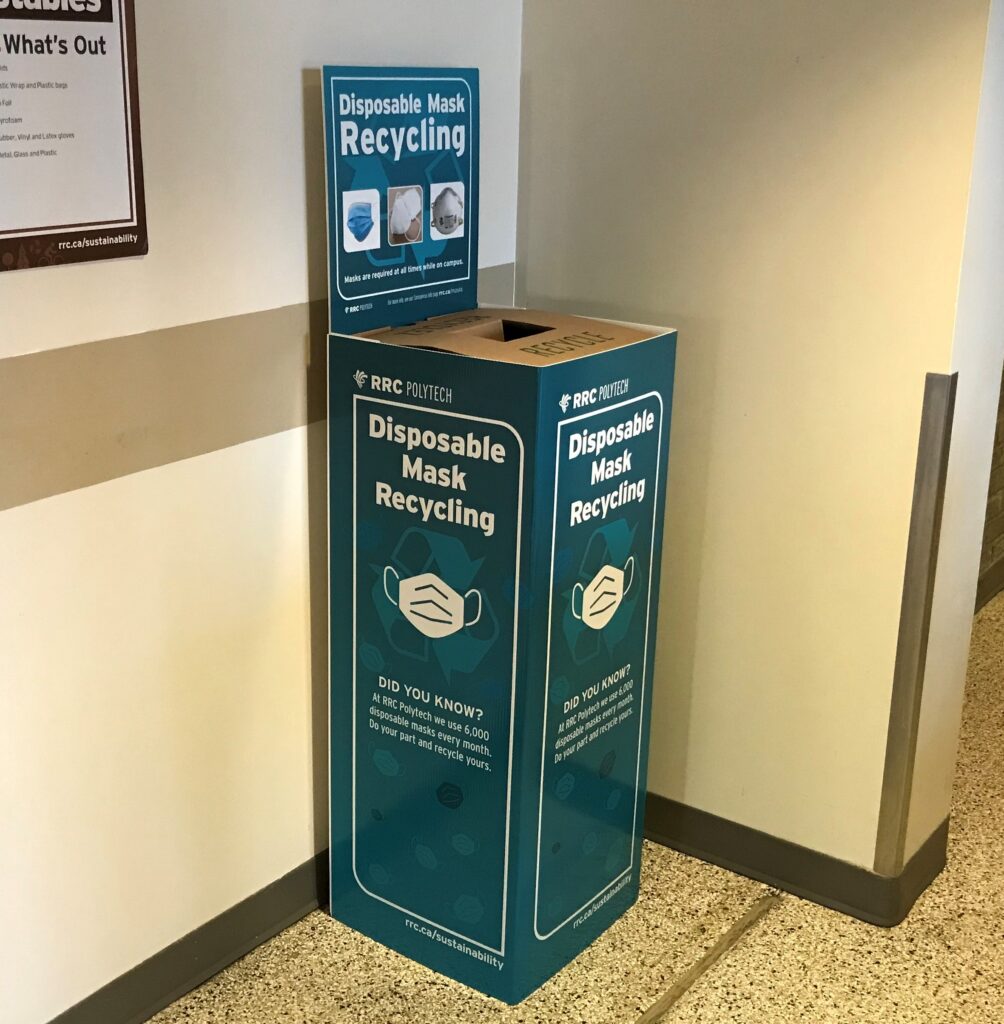Manitou a bi Bii daziigae Building Wins Prestigious National Award
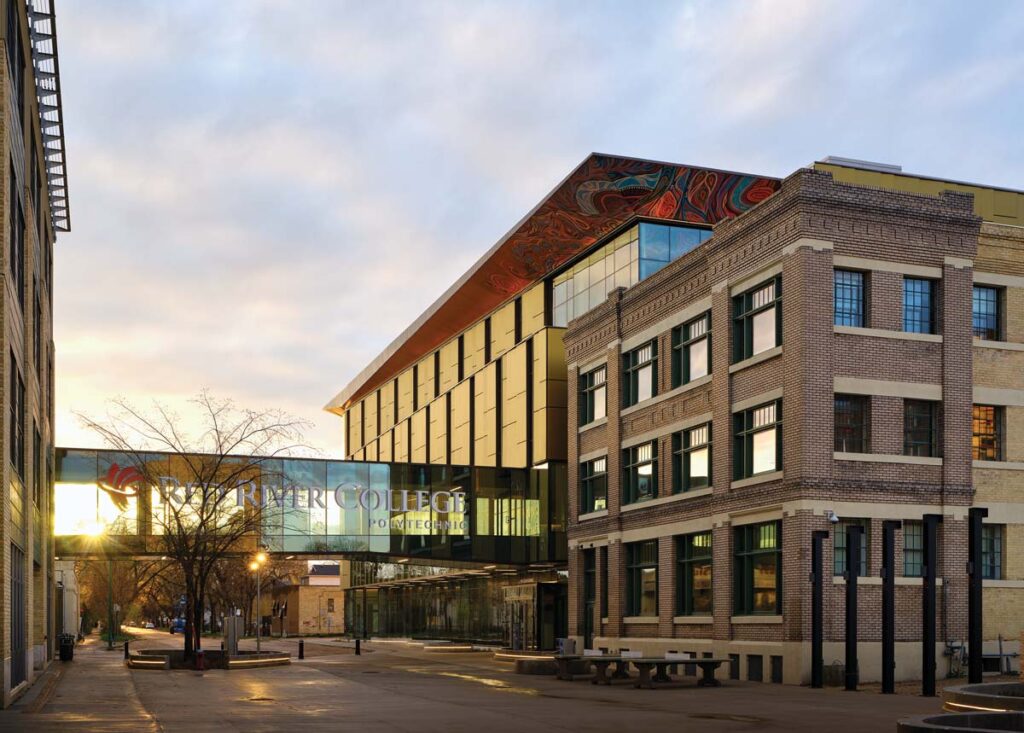
On June 1st, 2023 members of the Manitou a bi Bii daziigae project team attended the Canada Green Building Council national conference in Vancouver B.C. The team was recognized at the award ceremonies with the New Construction award for Green Building Excellence, presented to only one group from across the country each year. This prestigious award celebrates the most innovative and inspiring green building projects in Canada.
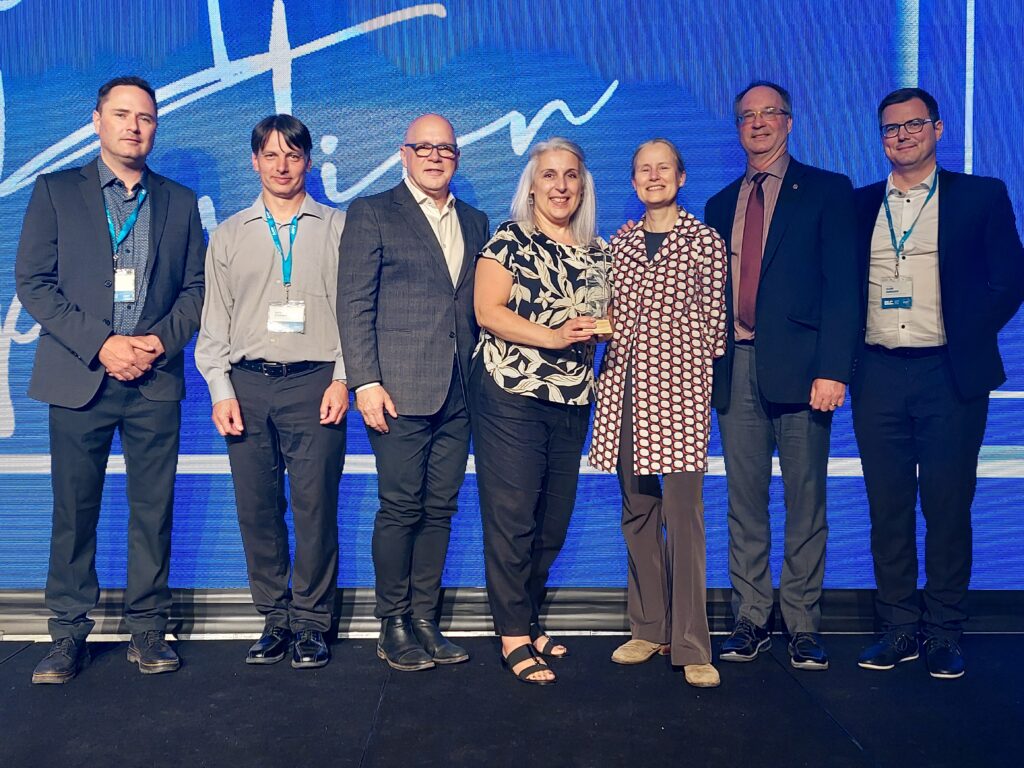
The judge’s selection of Manitou a bi Bii daziigae focused on the design stage and the choices made to achieve environmental sustainability goals and occupant health and wellness. A key aspect of that success was the prioritizing of Indigenous knowledge, teachings and traditions in the design and creation of the building. The end result is a building that achieves ambitious energy efficiency goals while providing inclusive, functional and beautiful spaces for learning and collaboration.
Manitou a bi Bii daziigae is on track to be RRC Polytech’s fourth LEED-certified building, with a goal of 100 energy use intensity and a near net zero efficiency. For more details on the many sustainability design features of Manitou a bi Bii Daziigae, including the building integrated photovoltaic exterior, the Indigenous artwork, pedestrian plaza and the abundance of natural light, please check out the virtual tour and write up here.
